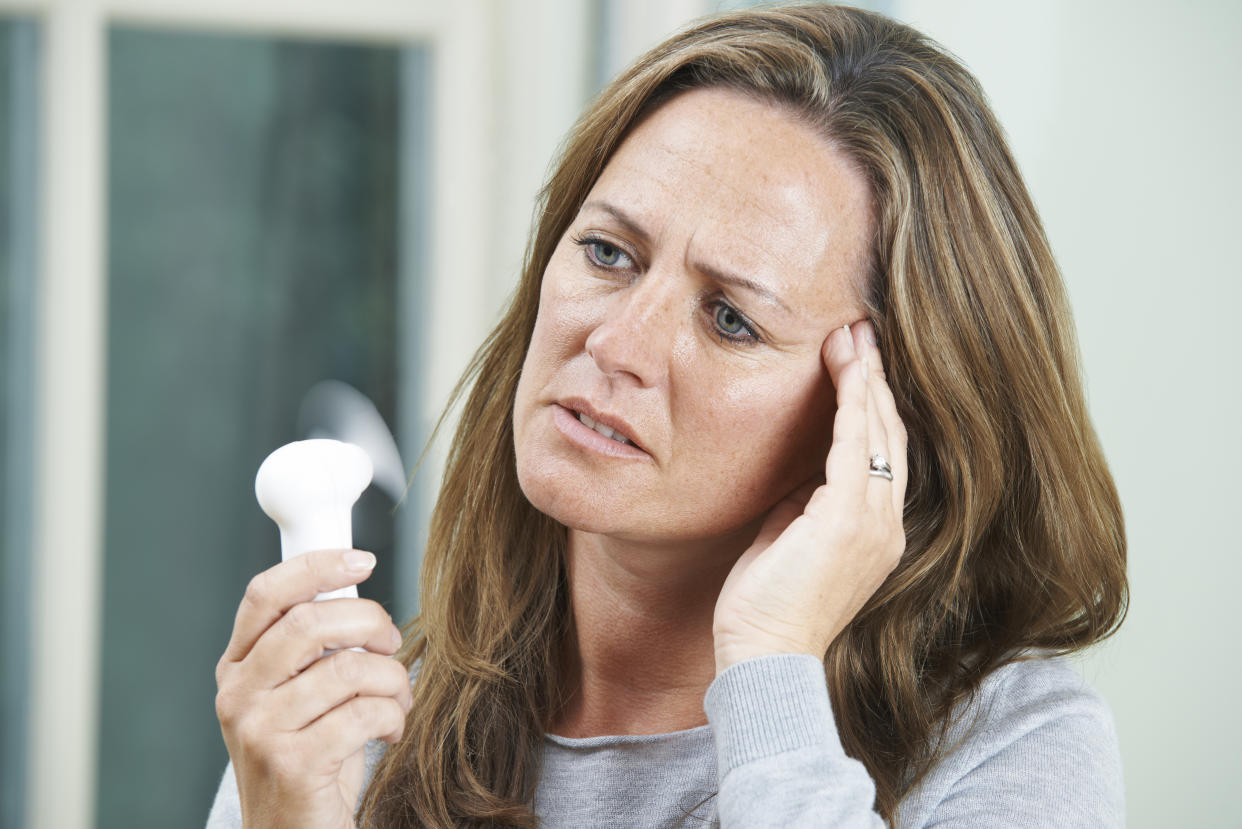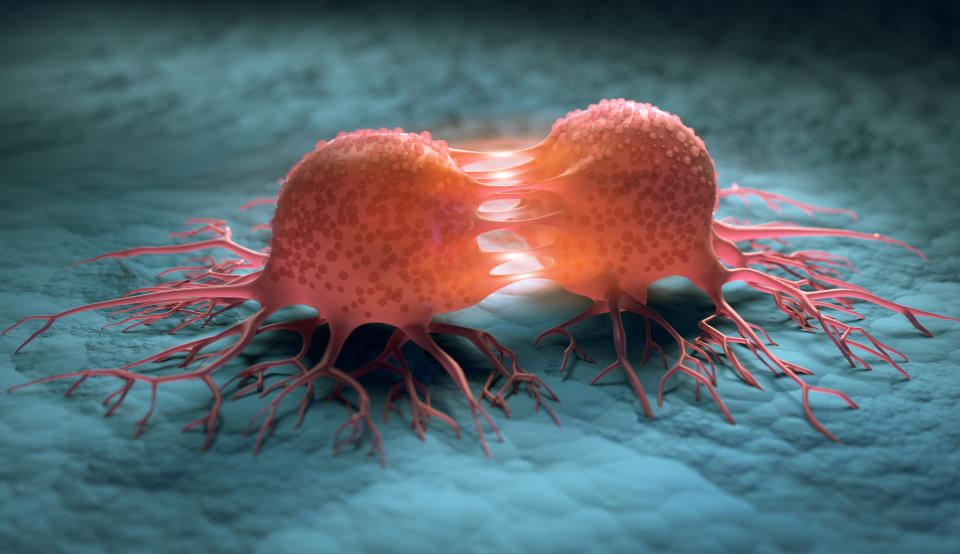Menopausal women who take HRT may face up to a 79% higher risk of breast cancer, study suggests

A new study adds to a growing body of evidence about the potential harms of hormone replacement therapy (HRT).
HRT replaces hormones that naturally start to decline when a woman enters the menopause.
The controversial treatment can ease everything from hot flushes and mood swings to vaginal dryness and low libido, however, some types of the therapy are known to raise a woman’s risk of breast cancer.
According to the NHS, “the benefits of HRT are generally believed to outweigh the risks”.
To better understand this, scientists from the universities of Nottingham and Oxford analysed HRT prescriptions for more than 98,000 women aged 50 to 79 who were later diagnosed with breast cancer.
Read more: GP demonstrates how to check breasts for signs of cancer
They also looked at the prescriptions of more than 457,000 women of the same age who did not develop the disease.
Results suggest the women who recently took oestrogen-only HRT for five or more years were 15% more likely to develop breast cancer than those who were never prescribed the therapy.
Combined oestrogen-progesterone HRT over the same time period was associated with a 79% increased risk of the disease.

A doctor may not prescribe HRT if a woman has a history of breast, ovarian or womb cancer. Although unclear, the hormones may encourage malignant cells to grow.
Of those who are eligible for the treatment, “most women take a combination of oestrogen and progestogen, although women who do not have a womb can take oestrogen on its own”. Taking oestrogen has been linked to womb cancer.
HRT can be administered via tablets, skin patches, gels, or vaginal creams, pessaries or rings.
Most women stop taking the therapy once their menopause symptoms have passed, usually after a few years.
For some, HRT can be “life-changing”, the Nottingham and Oxford scientists wrote in the BMJ.
As well as improving a patient’s quality of life, it has also been linked to a reduced risk of osteoporosis.
Read more: Bee venom 'kills breast cancer cells in the lab within an hour'
The NHS acknowledges women who are on HRT for more than a year have a higher risk of breast cancer than those who never take it. This applies to all types of HRT, except vaginal oestrogen.
HRT aside, one in seven women in the UK will statistically develop breast cancer at some point in their life.
Concerns over a heightened risk has led to a “substantial decrease” in HRT use over the past 17 years, with guidelines recommending it be taken for no more than five years.
In 2019, a review of 24 studies suggested HRT causes a “higher than expected breast cancer risk”, however, there was still uncertainty around the implications of different types and durations of the therapy.
Watch: Breast cancer researcher develops the disease
The Nottingham and Oxford scientists analysed two primary-care databases linked to hospital records to compare HRT prescriptions among women of the same age from the same GP surgery, some of whom developed breast cancer.
The results suggest the breast cancer risk was 15% higher among the women who recently took oestrogen-only HRT for five or more years.
Combined oestrogen and progesterone was linked to a 79% increased risk.
Oestrogen-only HRT was not linked to breast cancer among the women who took the therapy five or more years ago, with the duration of their treatment also lasting five or more years.
Past short-term use of oestrogen-progesterone – defined as taking HRT five or more years ago for less than five years – was also not associated with an increased breast cancer risk.
The women who took oestrogen-progestogen five or more years ago, however – with the treatment also lasting five or more years – were 16% more likely to develop the disease.
Read more: Breast cancer cells could be manipulated to help treat tumours
According to the NHS, “the increased risk of breast cancer falls after you stop taking HRT, but some increased risk remains for more than 10 years compared to women who have never used HRT”.
The scientists hope their results will give some clarity to how different types and durations of HRT influence a woman’s breast cancer risk, with the odds seeming to be higher when a combined hormone treatment is taken long-term.
“Our results add more evidence to the existing knowledge base, and should help doctors and women to identify the most appropriate HRT formulation and treatment regimen,” they wrote.
“[The result should also] provide more consistently derived information for women’s health experts, healthcare researchers and treatment policy professionals,”
HRT aside, menopausal women with hot flushes or night sweats may benefit from wearing light clothing, keeping their bedroom cool and avoiding triggers, like spicy food or alcohol.
Mood changes may be eased via relaxing exercises like yoga or cognitive behavioural therapy.
Over-the-counter vaginal lubricants can help with dryness, while a doctor may prescribe testosterone to boost a woman’s sex drive.
Watch: How to check your breasts for lumps



